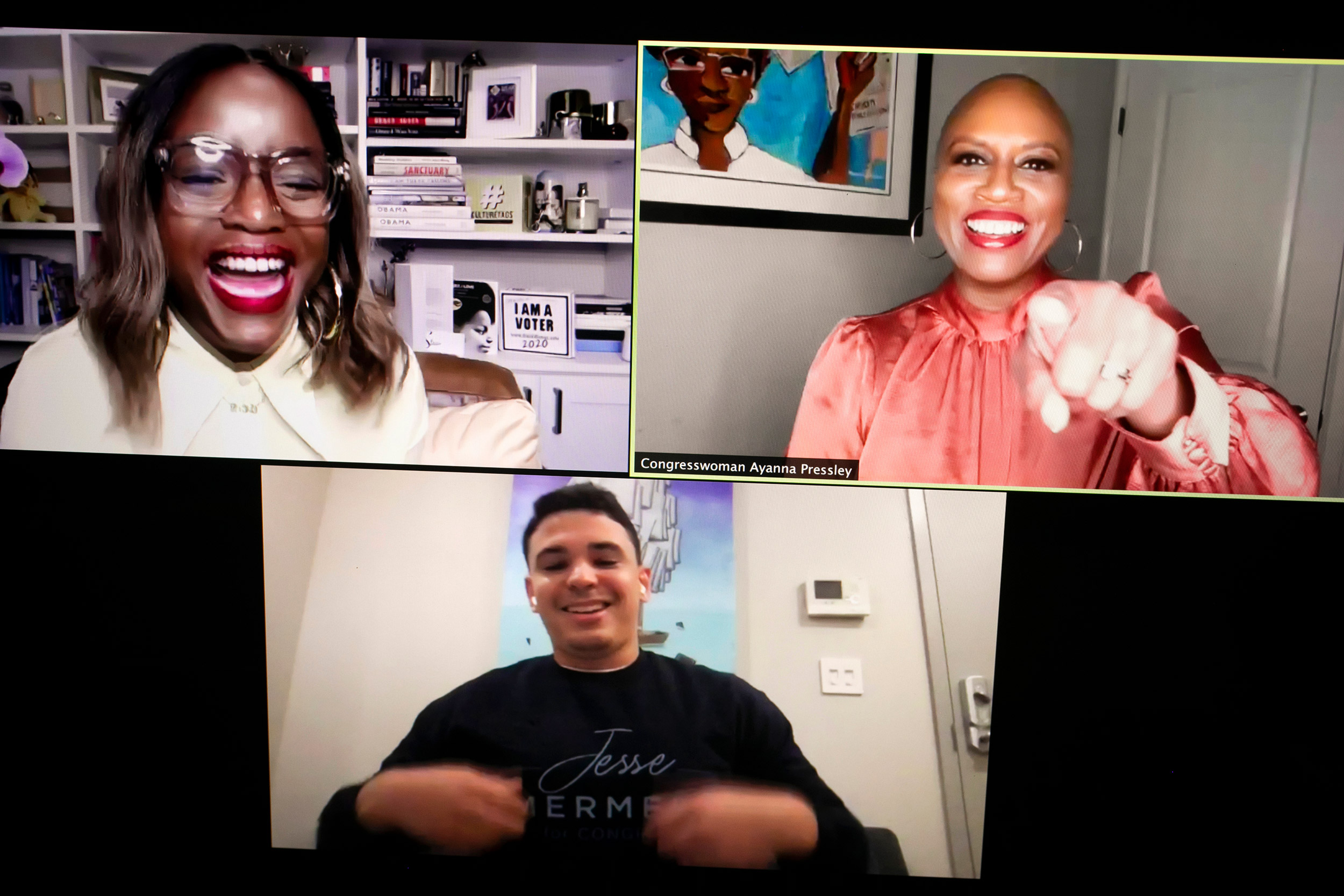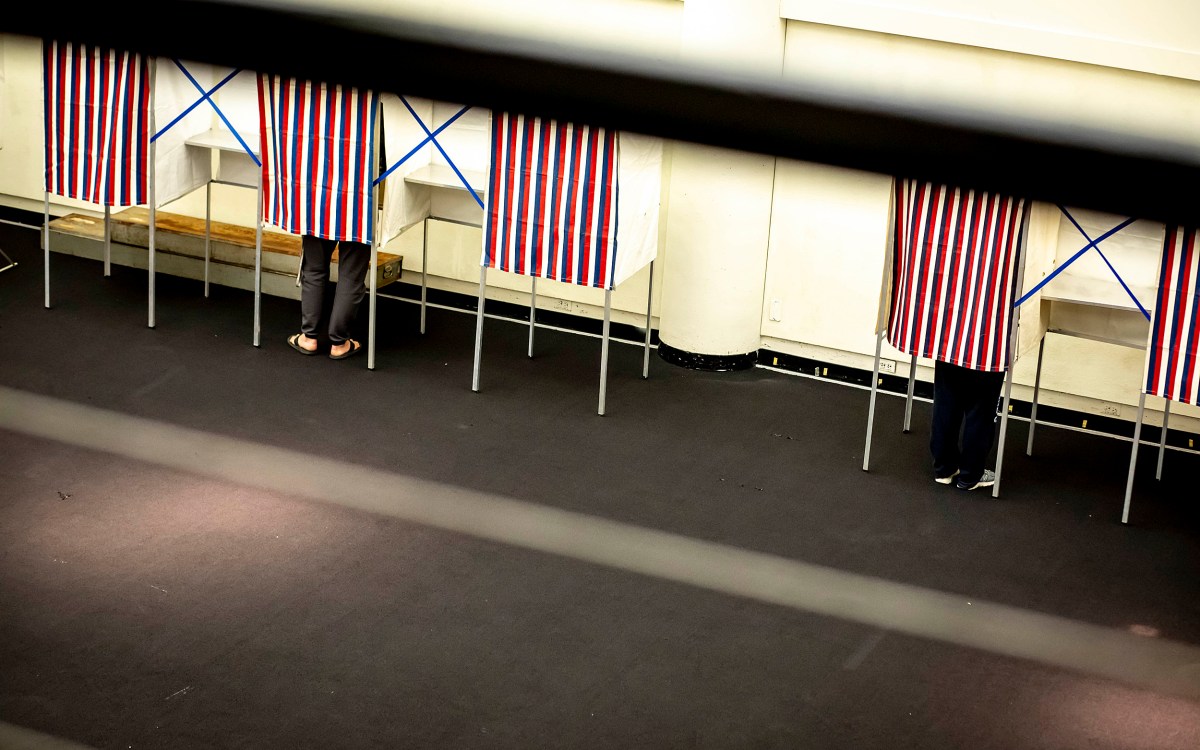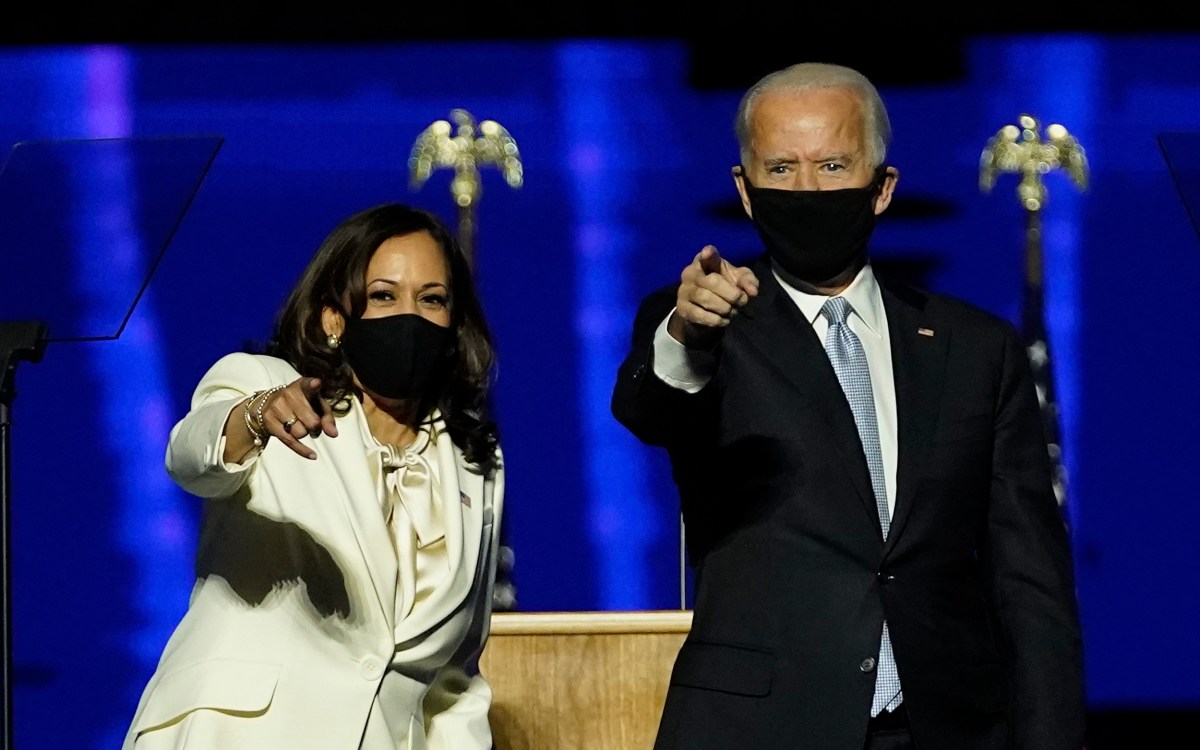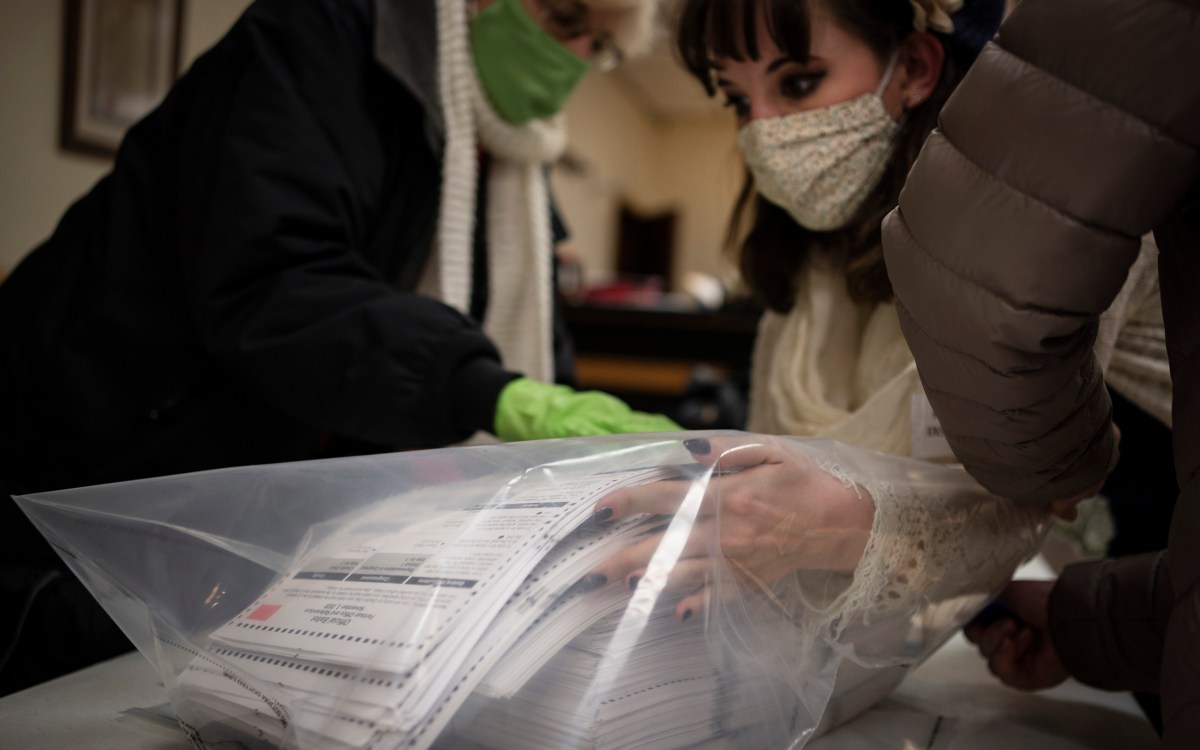
IOP fellow Brittany Packnett Cunningham (clockwise from upper left) spoke with U.S. Rep. Ayanna Pressley, who addressed questions from listeners via Zoom. Pictured is Harvard College student Ben Bryant ’22.
Stephanie Mitchell/Harvard Staff Photographer
Pressley says election success points the way for Democrats
Putting people at the center of efforts will be key to progressive policies
U.S. Rep. Ayanna Pressley of Massachusetts sees both lessons and a way forward in the historic turnout and Democratic success in the recent presidential election.
“The story of this cycle needs to be the people,” said Pressley, a Democrat. “We met the moment with unprecedented organizing, with unprecedented mobilizing, and because of that we gave the people unprecedented hope.” Specifically, she called President Trump’s loss by a record popular vote margin “an incredible testament to the labor and the sacrifice of Black women.”
Pressley spoke about her mandate as a newly re-elected representative of the state’s 7th Congressional District and the choices facing the party’s progressive wing on Tuesday evening in an Institute of Politics forum with IOP fellow Brittany Packnett Cunningham.
Following a warm introduction by Sabrina Paris Goldfischer ’23, chair of the IOP’s Campaign and Advocacy Program, Pressley said that she felt “grateful, encouraged, but most of all emboldened” by her win.
Cunningham, a writer and activist, asked Pressley about “the post-election narrative.” How, she asked, does the framing of the recent presidential victory as a watershed event translate into political power?
“Revolutions begin with language,” Pressley said. “The narrative matters because it is an indicator of where we are going to go with the policy.”
“We’re still in the Civil Rights Movement,” she continued. “You are writing the next chapter, right now.”
A compelling narrative, both agreed, can also be used to dissuade voters, as when the Republicans try to scare voters about the so-called socialist agenda of progressives. “Because it’s never been done before, it feels disruptive. It feels uncomfortable,” said Pressley. To spread that fear, she said, Republicans promote a “scarcity mindset”: the idea that resources such as housing, health care, or equity itself are limited and that sharing them will mean that people now in power will have less.
“Justice is not scarce,” she said. “It has been, but it doesn’t have to be.”
Still, she noted, change is happening. “Just six years ago, you weren’t supposed to say, ‘Black lives matter,’” she observed. “We’re meeting the moment, and our policies have to reflect that.”
“We’re still in the Civil Rights Movement. You are writing the next chapter, right now.”
U.S. Rep. Ayanna Pressley
That progressive agenda, Pressley said, is more important now than ever. Within her own district, she noted, the economic inequality is enormous — as are the consequences. “From Cambridge to Roxbury, life expectancy drops by 30 years and household income by $50,000,” she said. “The pandemic has laid these disparities bare, and we cannot return to a status-quo normal.” Citing food scarcity as well as fear of eviction, she added, “families were already on the precipice. We have to meet the moment with bold policies.”
Addressing specifics of immigration policy, Pressley called for the end of family separation, protecting DACA recipients, and defunding U.S. Immigrations and Customs Enforcement (ICE). Making the case for compassion and reform, she explained, “My district is 40 percent foreign-born.”
“There’s an 11-year-old undocumented girl in my district,” she said. “Her mother said, ‘I’m not feeling well. I’m going to get checked out.’” The girl’s mother ended up hospitalized with COVID-19. “That 11-year-old cared for her 9-month-old brother for two weeks before anyone knew she was alone.” She had managed to use a towel as a diaper for her brother, but, even as they ran out of food, she was too afraid to ask for help. “She was scared she’d be met with punishment instead of compassion,” said Pressley.
More like this
In terms of public health and climate change, Pressley’s answers were simple: Medicare for All, the Green New Deal, and rejoining the Paris Agreement. She also spoke about voter-suppression efforts in conservative states after the 2013 Supreme Court ruling ended a key piece of the Voting Rights Act that required federal oversight of election-law changes by states with histories of discriminatory voting practices. She added a rhetorical allusion to state election officials’ power as final arbiters: “If we didn’t get the point this year that secretaries of state matter …”
Ajay Sarma, a sophomore Zooming in from St. John’s, Fla., asked about the feasibility of finding bipartisan agreement in Congress.
“Bipartisanship is more of a talking point than a goal,” responded Pressley. Repeating her often-cited mission of “centering” — or focusing on — “the people,” she pointed to a larger mandate.
“The goal is centering the people and meeting their needs, mitigating their hurt,” she said. “The goal is justice, the goal is freedom, the goal is relief. I believe by taking care of the most marginalized — who delivered this victory — everyone will benefit.
“Organizing and mobilizing and legislating our values is how we have achieved every gain we have achieved,” she said.









